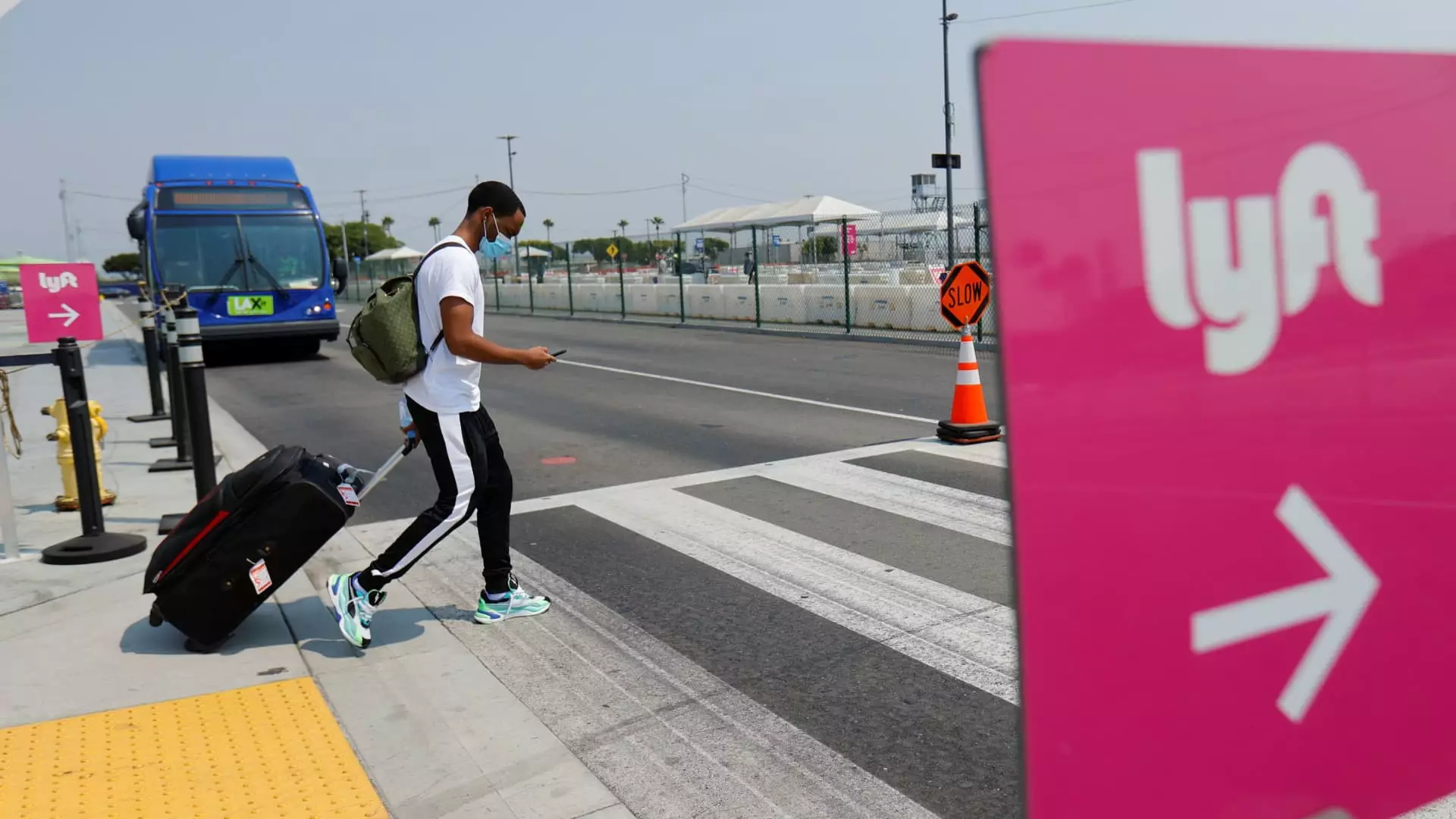In a dramatic twist on the stock market stage, Lyft’s shares skyrocketed by 23% in one trading session following the company’s announcement of an increased share buyback program and impressive gross bookings figures. This surge is not merely a statistic; it embodies the potential resilience and adaptability of a company navigating the tumultuous waters of economic uncertainty. CEO David Risher expressed a confident outlook during a recent interview on CNBC’s “Squawk Box,” where he stated that no alarming signs were present despite the prevailing sentiment of consumer anxiety across various sectors.
Gross Bookings on an Upward Trajectory
Lyft reported gross bookings reaching an impressive $4.16 billion, marking a 13% increase from the previous year. This result exceeded expectations set by financial analysts, who had predicted only $4.15 billion. Notably, this achievement represents the company’s 16th consecutive quarter of gross bookings growth, which is significant in a market often riddled with volatility. The organization also saw rides increase by 16% to 218.4 million, surpassing estimates by FactSet. Such numbers are not merely quantitative but indicate a thriving demand for ridesharing—an essential service that many continue to rely on despite broader economic concerns.
Revenue and Profitability: A Mixed Picture
While Lyft’s revenue for the first quarter grew by 14% from a year prior, hitting $1.45 billion, the figure still fell short of analyst expectations of $1.47 billion. This divergence raises questions about the sustainability of their growth in an unpredictable economic environment. However, a glimmer of hope emerged as the company reported a net income of $2.57 million, translating to a slender profit of one cent per share, a significant turnaround from the net loss of over $31 million from the same quarter last year. Such financial reports emphasize the ongoing struggles companies face balancing growth while navigating profitability.
Strategic Share Buybacks: A Sign of Confidence
The announced increase in Lyft’s share buyback plan—from $500 million to $750 million—speaks volumes about the company’s confidence in its future. This move has already garnered positive reactions from investors, notably leading activist investor Engine Capital to cease their campaign against Lyft’s board. The decision highlights the importance of shareholder confidence and the impact of strategic financial maneuvers in fostering trust among investors. Engine Capital’s founder, Arnaud Ajdler, noted the board’s commitment to substantial share repurchases, a signal that leadership is willing to take actionable steps to enhance shareholder value.
A Comparative Landscape with Competitors
Interestingly, as Lyft soared, rival ride-sharing service Uber experienced a dip in its stock price following mixed financial results earlier in the week. This contrasting outcome between two industry players raises intriguing questions about market dynamics and the perceived investor sentiment toward each brand’s potential in an oscillating economy. It emphasizes that while Lyft is managing to forge a path of growth and investor confidence, Uber’s struggles could represent broader challenges within the sector.
Lyft’s recently reported performance is more than just a flicker of financial recovery; it is an embodiment of strategic foresight and resilience amid economic headwinds. As consumers continue to lean on services like ridesharing, Lyft appears well-positioned to capture and sustain this demand.

